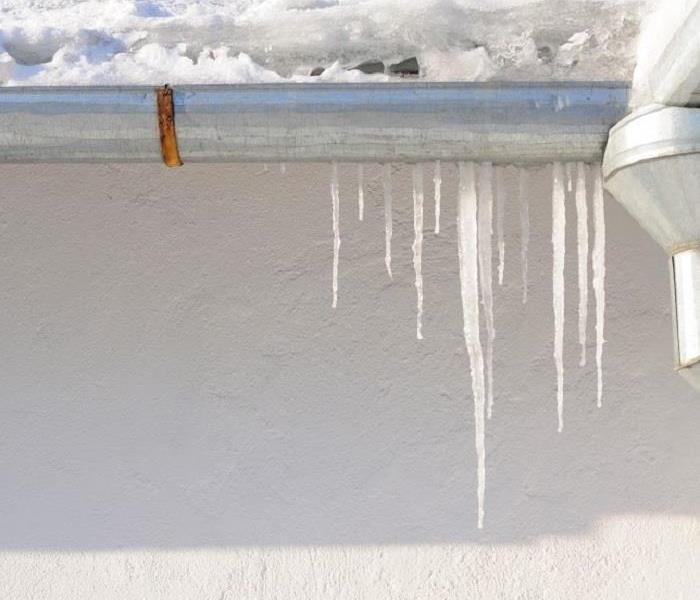Tips to Prevent Residential Water Damage This Winter
11/19/2019 (Permalink)
 Snow and ice can create water damage. Contact SERVPRO of Western Lancaster County if you experience any water damage that may arise this winter
Snow and ice can create water damage. Contact SERVPRO of Western Lancaster County if you experience any water damage that may arise this winter
The combination of cooler temperatures, snow, and ice leaves your home vulnerable to water damage. Even a minor amount of standing water anywhere in the home can lead to major damage and a huge repair bill. Luckily, you can do several things to prevent the most common causes of water damage.
Discover a few ways you can winterize your home to keep water damage from ruining the season.
Inspect Your Plumbing
Schedule a plumbing inspection before the first snow falls and the temperatures drop. Ask the plumber to look for damaged pipes and to check the sump pump, main sewer pipe, and water heater. An operational sump pump is critical, especially in the late winter after the snow starts to melt.
If the sump pump doesn't work, any standing water in the basement could not only cause damage, it could drain into the sewer and cause a major backup. Keep an eye on your basement throughout the winter, and if any standing water exists or if you suspect the sewer has backed up, contact a water restoration company immediately to get rid of standing water and sewage.
In addition to causing damage to anything stored in the basement, if water that seeped into the basement floor or foundation freezes, it could cause major damage.
Install Water Leak Detectors
Imagine being away for the holidays and coming home to find several inches of standing water in your home. Serious water damage can even occur even if running water exists for a few hours while you are at work. A water leak detection system is the first line of defense against a serious catastrophe during winter.
Two main types of water leak detectors exist: active and passive. A passive unit will alert the homeowner that too much water is in a area or when the moisture levels become too high. The homeowner can then shut off the main water supply or the valve nearest the area that is being flooded.
An active unit will alert the homeowner to a leak or standing water and can automatically shut off the water to an individual appliance or the whole house. Do note that active leak detectors are more expensive than passive units.
Prepare Your Home's Exterior for Winter
Check for any vulnerable areas on your home's exterior that could cause interior water damage, including:
Foundation cracks. Seal any cracks or repair damage to the foundation. Water expands when it freezes, and if any moisture gets into these foundation cracks, it will lead to major damage.
Damaged or overflowing gutters. Repair damage and clean the gutters to allow water to flow away from the house and not down the siding and into the basement.
Water puddling around the foundation. Divert any water away from the home by either installing French drains or by hiring a professional to regrade the yard.
Contact a professional to inspect your roof and siding, repair any damage, or replace shingles and siding.
Prevent Burst Pipes
Finally, one of the most common and preventable causes of interior water damage is frozen and burst pipes. Wrap the exposed pipes in your home with foam pipe insulation, including pipes under your kitchen and bathroom sink. Leave the water running in a couple of faucets on particularly cold nights.
Moving water is less likely to freeze than water that is standing inside frigid pipes. If your pipes are frozen, use a blow dryer or another heat source to thaw them immediately.
Take the necessary steps before winter to prevent residential water damage that can cause serious damage and cost you a lot of money. Contact the professionals at SERVPRO of Western Lancaster County with any damage restoration or mold remediation questions.






 24/7 Emergency Service
24/7 Emergency Service